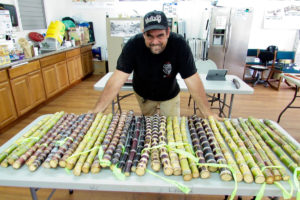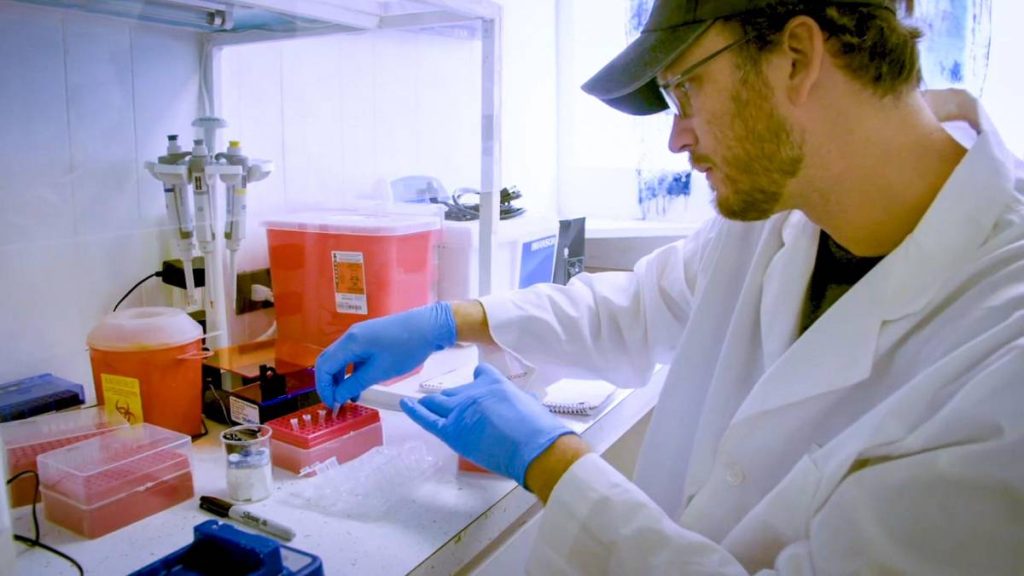Researchers: Sugarcane ‘Not Dead, Just Different’

Ted Radovich at CTAHR’s Waimanalo Research Station with native sugarcane varieties. Photo courtesy of UH.
Researchers at the University of Hawai‘i are shedding light on local sugarcane cultivation efforts and their continuing value to Hawai‘i agriculture and communities.
Assistant Researcher Noa Lincoln and Associate Specialist Ted Radovich of the UH College of Tropical Agriculture and Human Resources (CTAHR) are examining both traditional and modern organic growing systems, including intercropping sugarcane with ‘ulu (breadfruit), juice quality and nutrient cycling.
“I don’t think sugar is dead in Hawai‘i,” said Lincoln. “In many ways I think it’s a good thing that that the plantations might have closed down. They’ve had a good run and a huge impact in Hawai‘i but I think—their closure makes way for a whole new realm of agriculture.”
Lincoln is currently authoring a book that identifies all known varieties of native sugarcane as well as their cultural significance.
Lincoln and Radovich’s efforts to help local producers choose and cultivate native sugarcane species adds value to small-scale agriculture operations while serving as an engagement tool to the community, according to a UH news release. Local producers currently use sugarcane to make cane skewers, swizzle sticks, rum agricola and fresh cane juice rum.
Radovich said: “It’s become a high-value horticultural crop as opposed to a low-value agronomic or plantation crop.”
Sugarcane was first introduced to the Islands by Native Hawaiians roughly 1,000 years before Europeans arrived, according to UH. They cultivated sugarcane (or kō) extensively in various landscapes, developing and growing dozens of native varieties.















